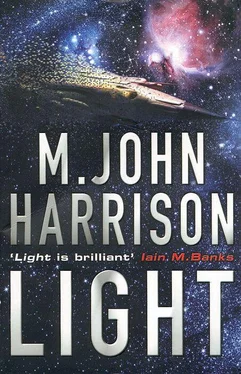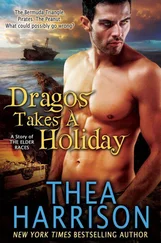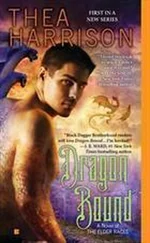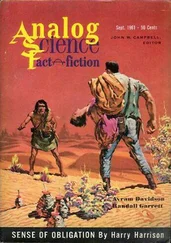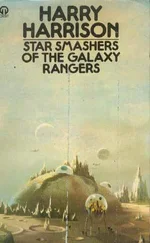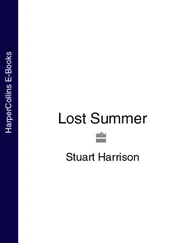'We went to the pictures in Fulham, to see a Tarkovsky film, I think it was Mirror. But I went to the wrong cinema, and it was bitterly cold, and I was sitting on the steps outside waiting for you for an hour. When you got there, all you could look at was my Russian hat.'
'I remember that hat,' Kearney told her. 'You said it made your face look fat.'
'Broad,' said Anna. 'I said it made my face too broad. And you said, without a moment's hesitation, "It makes your face your face. That's all, Anna: your face." Do you know what else you said?'
Kearney shook his head. All he really remembered was angrily searching the cinemas of Fulham for her.
'You said: "Why spend any more of your life apologising?" '
She looked down at him, and after a pause said, 'I can't tell you how much I loved you for that.'
'I'm glad.'
'Michael?'
'What?'
'I want you to fuck me in my Russian hat.'
She brought her arm from behind her back and there it was in her hand, a silky grey fur thing the size of a cat. Kearney began to laugh. Anna laughed too. She put the hat on her head and instantly looked ten years younger. Her smile was wide and pretty, as vulnerable as her wrists. 'I never could understand someone who wore a Russian hat to watch Tarkovsky,' he said. He gathered her nightgown up into the small of her back and reached down. She groaned. He was still able to think, as he often thought, Perhaps this will be enough, release me at last, push me through the wall between me and me.
He thought: Perhaps this will save her from me.
Later he made a phone call, and that afternoon, as a result, found Valentine Sprake wandering up and down the taxi rank at Victoria station with two or three blackened pigeons running in and out between his feet. They were all lame. Sprake looked irritated.
'Never phone me on that number again,' he said.
'Why?' asked Kearney.
'Because I fucking don't want you to.'
He showed no signs of remembering what had happened when they last met. His engagement with the Shrander-his flight, if it could be described like that-was as private as Kearney's, as private as madness: a dialogue so internalised it could only be inferred, partially and undependably, from the sum of his actions. Kearney got him in a cab and they went through the coagulated traffic of Central London then out to the Lea Valley, where the shopping parks and industrial estates were still embedded with a vestigial tissue of residential streets, neither clean nor dirty, new or old, inhabited by mid-day joggers and half-dead feral cats. Sprake stared sullenly out the windows at the alloy siding and empty buildings. He seemed to be whispering to himself.
'Have you seen this Kefahuchi thing?' Kearney asked him tentatively. 'On the news?'
'What news?' said Sprake.
Suddenly he pointed out a display of flowers on the pavement in front of a florist's. 'I thought those were wreaths,' he said, with a bleak laugh. 'Sombre though colourful,' he added. After that, his mood improved, but he kept saying, 'News!' under his breath in a contemptuous fashion until they reached the offices of MVC-Kaplan, which were hushed, warm and empty at the end of the working day.
Gordon Meadows had begun his career in gene-patenting then, after a series of high-profile drug launches for a Swiss-based Pharmaceuticals house, moved laterally and with ease into money. He specialised in ideas, kickstarts, original research. His style was to a blow a pure, weightless bubble: boost capitalisation, float, talk the stock up, and profit-take a stage or two before the product was due onstream. If you didn't get that far, he dumped you for what he could get. As a result, Meadows Venture Capital had the whole of a curious bolted-glass structure which glittered uneasily between the tailored alloy faзades of a Walthamstow 'excellence' park; and no one remembered Kaplan, a puzzled highbrow who, unable to meet the challenge of free market thinking, had returned only briefly to molecular biology before becoming a teacher in a Lancashire comprehensive.
Meadows was tall and thin, with a kind of willowy fitness. When Kearney first knew him, fresh from his pharmaceutical triumphs, he had favoured the merciless saffron haircut and goatee of the internet entrepreneur. Now he wore suits from Piombo, and his workspace-which had a grim view of trees along the towpath of the old Lea Valley Navigation- seemed to have been furnished from an issue of Wallpaper. BB Italia seating faced a desk made from a single slab of re-melted glass, on which stood, as if they had something to do with one another, a Mac Cube and Sottsass coffee pot. This he sat behind, eyeing Valentine Sprake with a cautious amusement.
'You must introduce us,' he told Kearney.
Sprake, who had worked himself up into a fever in the lift, now stood with his face pressed up against the glass wall of the building, staring down at two or three lumps of packing material the size of refrigerators, floating along the canal in the gathering twilight.
'Let's talk about him later,' recommended Kearney. 'He's got a great idea for a new drug.' He sat on the end of Meadows's desk. 'Brian Tate is worried about you, Gordon.'
'Is he?' said Gordon. 'I'm sorry if that's so.'
'He says you're progress-chasing. He's worried that you're going to sell us to Sony. We don't want that.'
'I think Brian is-'
'Shall I tell you why we don't want that, Gordon? We don't want that because Brian's a prima donna. You've got to show confidence in a prima donna. Try this thought-experiment.' Kearney held up his hands, palms uppermost. He looked at the left one. 'No confidence,' he said, and then, looking at the right one, 'no quantum computer.' He repeated this pantomime. 'No confidence, no quantum computer. Are you intelligent enough to see the connection here, Gordon?'
Meadows laughed.
'I think you're less naive than you suggest,' he said. 'And Brian is certainly less nervous than he pretends. Now let's see… ' He tapped a couple of keys. Spreadsheets blossomed on his monitor like ripening fruit. 'Your burn-rate's quite high,' he concluded after a moment. He raised his hands, palms upward, and mimicked the way Kearney had looked from one to the other. 'No money,' he said, 'no research. We need fresh capital. And a move like this-as long as we thought it was good for the science-would expand our opportunities, not limit them.'
'Who's "we"?' said Kearney.
'You aren't listening. Brian would have his own department. That would be part of the package. He wonders if you work hard enough, Michael. He's worried about his idea.'
'I think you're getting ready to dump us. Here's some advice. Don't try it.'
Meadows examined his hands.
'You're being paranoid, Michael.'
'Imagine that,' Kearney said.
Valentine Sprake turned away from the darkening view and walked in a jerky, hurried fashion across the room, as if he had seen, out there in the marshes, something which surprised him. He leaned over Meadows's desk, picked up the coffee pot and drank its contents directly from the spout. 'Last week,' he said to Meadows, 'I learned that Urizen was back among us, and His name is Old England. We are all adrift on the sea of time and space here. Think about that too.' He stalked out of the office with his hands folded on his chest.
Meadows looked amused.
'Who is that, Kearney?'
'Don't ask,' said Kearney absently. On the way out he said: 'And keep off Brian's back.'
'I can't protect the two of you forever,' Meadows called after him. That was when Kearney knew Meadows had already sold them to Sony.
Lightweight separators in pastel colours were used to create privacy inside MVC-Kaplan's otherwise featureless tent of bolted glass. The first thing Kearney saw outside Meadows's workspace was the shadow of the Shrander, projected somehow from inside the building on to one of these. It was life-size, a little blurred and diffuse at first, then hardening and sharpening and turning slowly on its own axis like a chrysalis hanging in a hedge. As it turned, there was a kind of rustling noise he hadn't heard for twenty years; a smell he still recognised. He felt his whole body go cold and rigid with fear. He backed away from it a few steps, then ran back into the office, where he hauled Meadows over the glass desk by the front of his suit and hit him hard, three or four times in succession, on the right cheekbone.
Читать дальше
